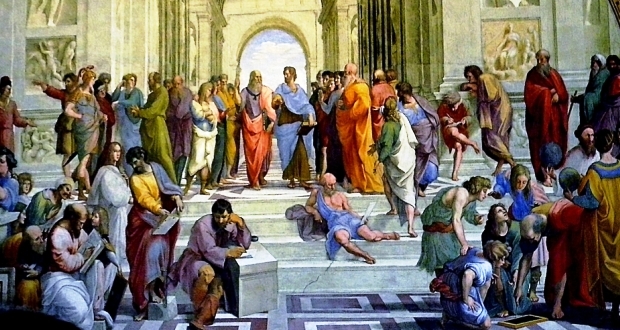Encountering the Gaze of Love: A Reflection on the Rich Young Man (Mark 10:17-30)

The story of the rich young man, as recounted in the Gospel of Mark, Chapter 10, verses 17-30, is one of the most profound and challenging encounters in the New Testament. It invites us to reflect deeply on our attachments, our priorities, and what it truly means to follow Christ. This passage isn’t simply about wealth; it reveals the heart of discipleship and the radical call to embrace God’s will above all else.
The rich young man approaches Jesus with eagerness, asking, “Good teacher, what must I do to inherit eternal life?” His question reveals a desire for more than just an ordinary existence; he seeks something transcendent, something that will give his life lasting meaning. Jesus’ initial response, “Why do you call me good? No one is good except God alone,” is both a subtle affirmation of His divinity and a gentle redirection of the man’s focus. Jesus points to God as the source of all goodness, reminding the man that the answer to his deepest longings is found in relationship with God, not in human efforts or achievements.
Adherence to the Commandments: Is it Enough?
When Jesus begins by listing the commandments, focusing on those that pertain to relationships with others—“Do not kill, do not commit adultery, do not steal, do not bear false witness, do not defraud, honor your father and mother”—He highlights the interpersonal dimensions of the moral life. The young man eagerly responds, “Teacher, all these I have kept from my youth.” His response reveals that he has been diligent, perhaps even scrupulous, in following the commandments. Yet, there is a sense that something is missing. His question—”What must I do?”—indicates that he knows there’s more to the spiritual life than mere rule-following.
In this moment, Jesus looks at him, and the Gospel tells us, “Jesus, looking at him, loved him.” This is one of the most striking aspects of the encounter. Jesus does not judge the man for his wealth, nor does He condemn him for his question. Instead, He loves him. This gaze of love is transformative; it is the gaze of God who sees into the heart, who knows our deepest desires, and who calls us to something greater.
Pope Saint John Paul II, in his encyclical Veritatis Splendor (The Splendor of Truth), reflects deeply on this moment, emphasizing that it is not merely about following rules, but about responding to a personal invitation from Christ. The young man has done well in keeping the commandments, but Jesus invites him to go further, to embrace the radical demands of discipleship.
The Radical Call: Letting Go of Attachments
Jesus’ next words are challenging: “You lack one thing: go, sell what you have, and give to the poor, and you will have treasure in heaven; and come, follow me.” The young man, upon hearing this, is disheartened and goes away sorrowful, “for he had great possessions.” This is the pivotal moment of the story. The man is faced with a choice: to follow Jesus and let go of his wealth or to hold on to his riches and walk away from the opportunity of a lifetime.
The sorrow of the young man reveals the depth of his attachment to his possessions. His wealth, which he likely saw as a blessing and perhaps even as a sign of God’s favor, had become a barrier between him and the full embrace of God’s will. In asking the man to sell his possessions and give to the poor, Jesus is not condemning wealth itself but is pointing out that the man’s attachment to it is preventing him from entering fully into the life of discipleship.
Wealth and the Kingdom of God
Jesus then turns to His disciples and says, “How difficult it will be for those who have wealth to enter the kingdom of God!” The disciples are astonished at His words. In the Jewish context of the time, wealth was often seen as a sign of God’s blessing, so Jesus’ statement is shocking. But Jesus doubles down, saying, “Children, how hard it is to enter the kingdom of God! It is easier for a camel to go through the eye of a needle than for a rich person to enter the kingdom of God.”
The image of a camel passing through the eye of a needle is a vivid and exaggerated metaphor, emphasizing the difficulty of entering God’s kingdom when one is weighed down by attachments to material wealth. The disciples, still amazed, ask, “Then who can be saved?” Jesus’ response is both comforting and challenging: “With man it is impossible, but not with God. For all things are possible with God.”
This interaction highlights a crucial truth: salvation is not something we can achieve on our own. It is a gift from God, made possible through His grace. No amount of wealth, no adherence to rules, and no human effort can earn us a place in the kingdom of God. It is only by surrendering ourselves to God’s grace and allowing Him to transform our hearts that we can enter into eternal life.
The Call to Radical Discipleship
The story of the rich young man challenges all of us to examine our own attachments. While not everyone is called to literally sell all they have, we are all called to let go of anything that stands in the way of our relationship with God. For some, this may be wealth, but for others, it might be power, status, comfort, or even certain relationships.
The Christian life is not about simply following rules or checking off boxes. It is about a relationship with Christ, who calls us to follow Him with our whole hearts. This often involves sacrifice and letting go of the things we hold dear. But as Jesus promises, those who make sacrifices for the sake of the Gospel will receive far more in return: “Truly, I say to you, there is no one who has left house or brothers or sisters or mother or father or children or lands, for my sake and for the gospel, who will not receive a hundredfold now in this time… and in the age to come eternal life.”
This promise of reward is not about material riches or worldly success. It is about the deeper, more lasting rewards that come from living in accordance with God’s will—peace, joy, and eternal life in communion with Him.
Detachment and Trust in God’s Providence
At the heart of Jesus’ message to the rich young man is the call to trust in God’s providence. When we hold on tightly to material possessions or worldly attachments, we are, in effect, placing our trust in those things rather than in God. We may believe, as the young man did, that our wealth or status can offer us security and fulfillment. But Jesus reminds us that true security and fulfillment can only be found in God.
Detachment, then, is not about renouncing the good things of this world for the sake of suffering. Rather, it is about freeing ourselves from the false belief that these things can provide us with ultimate meaning. It is about recognizing that everything we have is a gift from God and that we are called to use those gifts in service of others and in alignment with God’s will.
When we learn to let go of our attachments, we open ourselves to the fullness of life that God desires for us. We become more free to love, to serve, and to follow Christ wherever He may lead us.
A Personal Invitation to Follow Christ
One of the most beautiful aspects of this Gospel passage is the personal nature of Jesus’ invitation. He looks at the young man with love and invites him to follow. This is not a generic call, but a deeply personal one. Jesus sees the potential in the young man and desires to bring him into a deeper relationship with God. The same is true for each of us. Jesus looks at us with love, sees our potential, and invites us to follow Him more closely.
This invitation is both a challenge and a gift. It requires us to let go of the things that hold us back, but it also promises us a life of greater freedom, peace, and joy. The young man, sadly, chooses to walk away, clinging to his wealth. But we are invited to make a different choice. We are invited to say “yes” to Christ’s call, trusting that He will lead us to the fullness of life.
Conclusion: Where is Our Treasure?
The story of the rich young man invites us to reflect on where our treasure truly lies. Are we placing our trust in material possessions, status, or worldly success? Or are we willing to let go of those things and follow Christ wholeheartedly? Jesus’ call to the young man is a call to each of us, inviting us to a life of radical discipleship, a life of trust in God’s providence, and a life of deeper relationship with Him.
As we reflect on this passage, let us pray for the grace to respond to Jesus’ invitation with open hearts, willing to let go of anything that hinders our relationship with Him. Let us trust in His promise that those who follow Him will receive far more than they could ever imagine—both in this life and in the life to come.
With God, all things are possible.
Prayer of Detachment and Trust
Lord Jesus,
You gazed with love upon the rich young man, seeing his heart and inviting him to follow You more closely. I know that You gaze upon me with the same love, seeing both my strengths and the things I hold onto that keep me from fully embracing Your will.
Grant me the grace to let go of anything that hinders my relationship with You. Help me to detach from the material possessions, ambitions, or fears that weigh me down. Teach me to place my trust not in the things of this world, but in Your divine providence.
Lord, I desire to follow You with my whole heart. Strengthen my faith, so that I may respond to Your invitation with courage and joy. Lead me on the path of true discipleship, and help me to remember that in letting go of earthly attachments, I gain the treasure of eternal life with You.
May my life be a reflection of Your love, generosity, and grace, always seeking to serve You and others in all that I do. I trust in Your promise that with You, all things are possible.
Amen.





